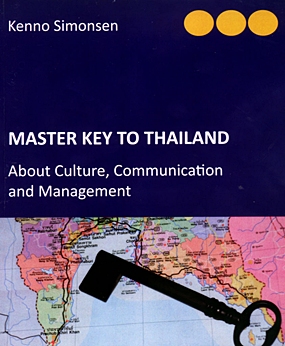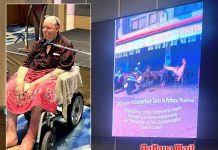Master Key to Thailand (ISBN 978-616-91113-0-6, Scand-media corporation, 2012) has been written by Kenno Simonsen and covers culture, communication and management, and was the subject of his thesis on cross-cultural psychology.
What author Simonsen has done, is to use his many interviews with people in Thailand, both Thai and Danish, which formed the nucleus of his masters degree, to put together what should be termed a ‘resource’ book on living and working in Thailand.

The book is divided into four main parts:
1. Facts about Thailand and Thai family structure, standards, rules of conduct and even a sub-section on the different Thai smiles.
2. Theories, both anthropological and psychological approaches.
3. Communication and management.
4. Advices and hints at establishing in Thailand.
Simonsen has found many truisms during his research, such as “It is easier to change the culture of your own company/department than it is to change the culture of a whole nation.” Initially this can be put down to Thais are living in Thailand, so the cultural norms are stronger than edicts attempted to be forced upon the workforce by foreign management. However, it is just as difficult to get the Thais to accept any deviations from their own culture, even when living in a foreign country!
Simonsen looks at the all-pervading influence of Theravada Buddhism on the local culture and explores the differences in cultural mores as regards time keeping, safety, dreams, ghosts and death.
Simonsen has done well not to degenerate into a ‘Them and Us’ debate, but calmly shows why there are so many inherent differences between the native Thai and the expat westerner.
An example of this is shown in the section called Time Management, where it is pointed out that a watch is an item of adornment, and not a device to be used to make appointments ‘on time’. In fact at the end of that chapter he states, “If an disagreement should end up in court, one has to remember that the judges are Thais as well. They are brought up in the Thai culture and therefore have a Thai approach to time management. In addition, one must take into consideration that corruption, as well as nepotism are powerful factors in the Thai society.”
Important items such as work permits for foreigners, purchase of real estate, applications to the Board of Investment and how to get around the thorny path of ‘kraeng jai’ are covered, and the advice is excellent.
Despite the fact that English is not his native tongue, author Kenno Simonsen has a good command of the language, though occasional odd usage of words does occur. However, what is more upsetting is his use of “bath” instead of “baht”!
The book does have a legitimate place in the “living in Thailand genre”. The preponderance of Danish data does not take away from the overall value of the publication. His explanations make good sense of situations where conventional western thinking is at odds with the Thai reality.
The book was left at the Editorial office, without price, but I would expect to pay around 600 baht.




